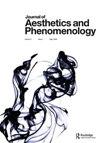The Ghost of Remembrance
IF 0.2
0 PHILOSOPHY
引用次数: 0
Abstract
ABSTRACT In a quest after the essence of memory, a crucial distinction is made between the notions of memory and remembrance, following Plato’s distinction between mneme (memory) and hypomnesis (archive). The article’s main argument is that memory has to do with the technical aspect of life, while remembrance has to do with what we live for. This is because the unwilled event of remembrance, which un-joins time, is always remembrance of one thing alone, i.e. the Thing. The notion of the Thing—addressed both by Heidegger and Freud—is analyzed in its psychoanalytic, theological and historical sense, as located in un-archiveable time, and as appearing in a spectral, violent fashion in our daily lives. Discussion is accompanied with examples taken from Proust’s novel In Search of Lost Time and François Ozon’s film “Frantz.”纪念的幽灵
在追寻记忆本质的过程中,继柏拉图对记忆(mneme)和记忆(hypomnesis)的区分之后,对记忆和记忆的概念进行了关键的区分。这篇文章的主要论点是,记忆与生活的技术方面有关,而记忆与我们生活的目的有关。这是因为,与时间分离的记忆的不自觉的事件,总是只记住一件事,即“物”。海德格尔和弗洛伊德对“物”的概念进行了精神分析、神学和历史意义上的分析,因为它位于不可存档的时间中,并以一种光谱的、暴力的方式出现在我们的日常生活中。讨论还附有普鲁斯特的小说《追忆似水年华》和弗朗索瓦·奥宗的电影《弗朗茨》中的例子。
本文章由计算机程序翻译,如有差异,请以英文原文为准。
求助全文
约1分钟内获得全文
求助全文

 求助内容:
求助内容: 应助结果提醒方式:
应助结果提醒方式:


